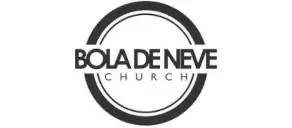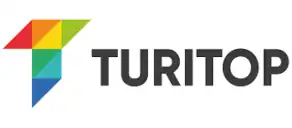Impact on Consumers and Industry
Why Bots Matter to Fans
Ticket bots significantly impact fans by limiting their access to tickets and inflating prices in the secondary market. For many fans, attending live events is a cherished experience, and missing out on tickets due to bots can lead to significant disappointment. The presence of bots creates an uneven playing field, where technology, rather than enthusiasm or loyalty, determines the person who secures a seat. Moreover, the increased competition from bots often results in tickets selling out within minutes, forcing fans to turn to resale platforms where prices are exorbitantly high. This not only places a financial burden on consumers but can also lead to a sense of disenfranchisement, as genuine fans feel sidelined in favour of profit-driven operations. Understanding why bots matter to fans is crucial for both the industry and regulators, as it highlights the need for effective measures to ensure fair and equitable access to live events for all enthusiasts.
Effects on Ticket Prices
The use of Ticket bots has a profound effect on ticket prices, primarily due to the dynamics of supply and demand. When bots purchase a large portion of available tickets, the supply for genuine consumers drastically diminishes. This scarcity artificially inflates ticket resale prices, as fans are left with no choice but to seek options on secondary markets, where prices can be exorbitantly higher. Bot operators, aware of the high demand, exploit this situation by setting resale prices far above face value. This practice not only distorts market prices but also undermines the efforts of artists and event organisers who aim to keep events accessible to a broader audience. Consequently, the inflated prices can deter potential attendees, impacting event turnout and overall fan satisfaction. Understanding these effects is critical for consumers and policymakers, as it underscores the need for regulations and technological solutions to protect fair pricing in the ticketing industry.
Combating the Bot Problem
Current Measures Against Bots
To tackle the widespread issue of Ticket bots, a range of measures has been implemented by ticketing platforms and governments. Technologically, companies like Ticket utilise advanced algorithms and machine learning to detect and block bot activities. Techniques such as CAPTCHA challenges, rate limiting, and IP tracking are employed to identify suspicious patterns and mitigate automated purchasing. On the legislative front, several countries have introduced laws specifically targeting bots. For instance, the United States enacted the Better Online Ticket Sales (BOTS) Act, making it illegal to bypass security measures on ticketing websites. Despite these efforts, the battle against bots is ongoing, as developers continuously adapt to circumvent new defences. Continuous innovation and collaboration between industry players and regulators are essential to enhance the effectiveness of these measures. Understanding current measures is crucial for consumers, as it informs them of ongoing efforts to restore fairness and balance in the ticket purchasing ecosystem.
Future Solutions and Innovations
As Ticket bots continue to evolve, future solutions and innovations are essential to outpace these challenges. One promising approach is the integration of blockchain technology in ticketing systems. Blockchain can offer a secure, transparent platform for verifying ticket authenticity and ownership, reducing the opportunity for bots to manipulate the market. Additionally, the use of biometric authentication, such as fingerprint or facial recognition, could further personalise the ticket purchasing process, making it harder for bots to impersonate legitimate buyers. Machine learning and artificial intelligence continue to advance, offering more sophisticated algorithms to detect and prevent bot activity. Collaborative efforts between ticketing service companies, event organisers, and governments are also vital, as sharing data and strategies can enhance the overall effectiveness of anti-bot measures. Understanding these future solutions is critical for stakeholders, as it underscores the importance of continuous innovation in preserving the integrity and fairness of the ticketing industry.
Conclusion: The Path Forward
Balancing Accessibility and Fairness
Striking a balance between accessibility and fairness is a critical challenge in the fight against Ticket bots. Ensuring that genuine fans have fair access to tickets while keeping events affordable requires a multifaceted approach. This involves refining technological solutions, such as enhancing detection methods to swiftly identify and block bot activities. Simultaneously, transparent pricing strategies can help maintain affordability, discouraging excessive mark-ups in the resale market. Collaboration among ticketing platforms, artists, and regulators is key to developing policies that protect consumer interests without stifling innovation. Additionally, educating consumers about secure purchasing practices and the risks of secondary markets can empower them to make informed choices. Understanding the need for balance is essential for all stakeholders, as it highlights the importance of creating a ticketing system that serves both the industry and its consumers equitably, fostering a fairer and more accessible live event experience.
Encouraging Responsible Ticket Sales
Promoting responsible ticket sales is essential to curbing the influence of Ticket bots and ensuring a fair ticketing environment. This involves implementing policies that prioritise transparency in ticket allocation and pricing. Ticketing platforms and event organisers can work together to limit the number of tickets that can be purchased in a single transaction, reducing the impact of bulk-buying bots. Additionally, offering loyalty programmes or pre-sale opportunities for verified fans can help ensure tickets reach genuine enthusiasts. Encouraging the use of official resale platforms with capped prices and inventory can further deter scalping and keep resale markets under control. By fostering a culture of responsibility and accountability, stakeholders can work to create a ticketing system that values fairness and accessibility. Understanding these strategies is crucial for consumers and industry players alike, as it underscores the collective effort needed to maintain integrity and trust in the ticketing process.
























